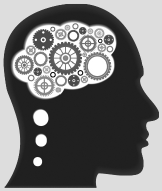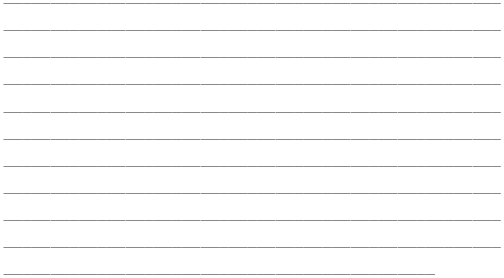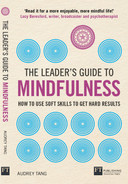Epilogue – beyond mindfulness
The opening questions
- Which (if any) mindfulness techniques have you implemented in your daily life? (Take a moment to think about how they have helped your performance.)
- What (if any) techniques have you suggested to others?
- What will you do now to progress your mindfulness practice?
Extending your learning
Becoming a leader is synonymous with becoming yourself. It is precisely that simple, and it is also that difficult.
Warren Gamaliel Bennis, 2014
Using mindfulness to improve your performance is not like learning other skills. The techniques in this book are there to enhance and benefit what you do, and they will still be there whenever you need them. You do not need to keep practising them for fear of ‘losing the skill’ but, rather, if you enjoy meditation and stop practising, you may feel as if you are missing that time for yourself. Similarly, sometimes, certain techniques may be more helpful than others – and, if a technique is less effective one day, it does not mean that it will not work in future. Mindfulness is another means of investing in yourself.
Everything you learn, everything you adapt, change or flex is a bonus to the foundation that is already there. You are assimilating new knowledge and growing even more with it, in the same way as you collaborate with your team or partner with other organisations to bring you to more than before. Not because the path you were on was wrong, but because mindful practice supplements what you already have, allowing you to better recognise, appreciate and utilise it.
In particular, the practice of mindfulness is of great support to leaders already practised in emotional agility. For those who are gifted at supporting, motivating and getting the best out of others, mindfulness enables you the time to focus on yourself. This helps you recharge as well as protect yourself against the many demands of performing emotional labour. As stated in the previous chapter, mindfulness is not just about better performance, it is about self-protection (which, in turn, aids performance and longevity).
Mindfulness, as stated at the very beginning of this book, promotes openness and implicit awareness of yourself and of others. With it, it generates kindness and compassion – traits important to the modern leader, especially one who is moving towards self-transcendence (Maslow, 1971). While you may note, as Wuthnow (1995) did, that the most prominent show of true kindness often is found within the natural instinct of the child but they learn to suppress it as they grow older – for fear of seeming weak, and there may be grounds for fearing kindness as a source of creating weak-ness. However, kindness and compassion bring extraordinary benefits to the workplace, as you will have recognised, but where it has a ‘dark side’, some channelling may be required and, perhaps, support for the labourer whose compassion may overwhelm them (Riley, 2010).
There will be ideas in this book that inspire you, activities which help you and directions revealed that may suit your needs – and there will be things that will not be as much use. This doesn’t matter. Part of mindful (and indeed efficient) practice is knowing actively what works for you and what doesn’t. Practising mindfulness is just one of many tech-niques available to you to help you navigate your course both personally and professionally in order to choose the life that you want.
Where do I go from here?
If the exercises in this book benefit you, repeat them. Try the different meditations included and use the internet or alternative resources for more – often it is more about finding a ‘voice’ and a style which you enjoy rather than specific topics for meditations.
Read more about mindfulness, download apps, even consider teaching it – but a word of caution, at the time of writing, as with much of the more holistic approaches to psychology, there is little regulation on mindfulness training programmes for teachers.
There may even be alternatives to mindfulness which you prefer. The Danish practice of Hygge (pronounces ‘hooga’) from a Norwegian meaning ‘well-being’ focuses on building a lifestyle which brings about ‘… a warm atmosphere. It is enjoying the good things in life with good people,’ (Visit Denmark, 2018). However, it is well to note that the Danish lifestyle is more set up for this with better civic support, a cleaner environment, social support (OECD, 2017). Although the working hours can average around 49 hours per week, the Danes themselves prioritise their home lives (Gray, 2017).
Alternatively, perhaps you wish to take up yoga or learn more about Buddhism – again, the internet is a good starting point to find local classes where you will also get the community benefits of meeting likeminded people and sharing your experiences.
Being more fulfilled within your life and your performance as a leader are inter-linked with elements that can be exclusive. While choosing not to practise mindfulness may not affect your performance short term because of all the skills and experience you have built up, you may miss out on the benefits that it entails or, perhaps, not be strong enough to come through the next setback.
What you choose now is up to you – remember to always make it an active choice.
IN SUMMARY
- Mindful practice techniques are there to enhance your current performance.
- Always use what works for you – if something doesn’t work at one point in time, leave it and consider coming back to it at a later point.
- While compassion is a good thing for the leader, make sure it is channelled and supported to avoid fatigue or burnout.
- You can enhance your mindfulness practice through wider reading or even experimenting with the alternatives such as yoga, Hygge or Buddhism, but the exercises in this book will always be there, should you need them.
CHAPTER 12 TOOLKIT

- Anything that helps you to be more aware of your being, enables you to take relaxed yet empowered action driven by choice rather than habit and supports you in your compassion towards others may be considered mindful practice.
- If it works for you – and makes you feel better – use it, if not, it’s ok to find something else (healthy) that does.
Key points to remember
- Always incorporate mindfulness into your day, whether it is just taking a moment to pause and reflect or one of the longer techniques.
- Sometimes read more about the areas of mindfulness that interest you and adapt and develop your practices.
- Try to show compassion to yourself, whether this is in using kind language or practising self-care – being mindful is just an enhancement to daily practice.
Take action
| 1. | Reflect on the following 10 ‘practical Buddhism’ teachings adapted from Seet Chee Kim’s10 teachings of Buddhism within everyday life. |
| Think about how their meaning can help your own conduct for: |
Learning without thought is labour lost.
(Seet, 1961)

____________________
10 Seet Chee Kim is the author’s grandfather. He taught Practical Buddhism in Youth Circles, Dharma Schools, and Buddhist Societies in Malacca, Malaysia.
What worked for me
| Date | Action |
| | |
Please use a separate piece of paper if necessary.
